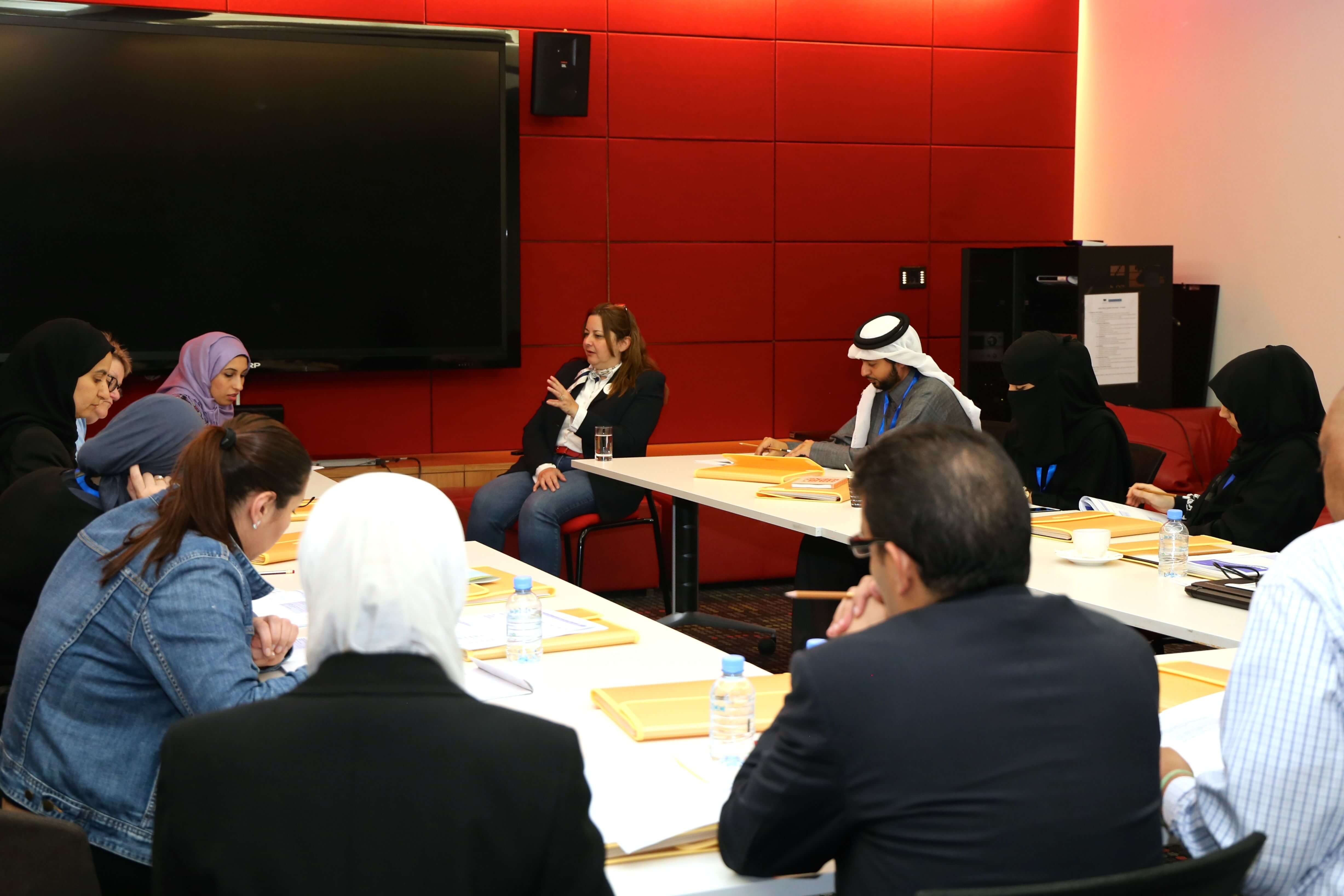
The Qatar Biomedical Research Institute (QBRI), one of Hamad Bin Khalifa University’s (HBKU) three specialized national research institutes, is holding two unique training courses on Autism Spectrum Disorder diagnosis in an effort to help improve the healthcare system in Qatar and build the capacity of scientists and medical practitioners in the region. Upon completion, participants will be certified to be able to use two standardized Autism diagnostic tools in both clinical settings and research studies.
Taking place at the HBKU Student Center from January 19th – January 27th, the courses have been held in collaboration with autism consultants from Cambridge, UK, and cover key approaches to diagnosing autism through the use of interviews, coding, and observation. In collaboration with local stakeholders, QBRI selected twelve local researchers, autism specialists, and medical practitioners to take part in this course, including eight from Hamad Medical Corporation (HMC), seven from the Shafallah Center for Children with Special Needs, and three representing QBRI. Dr.Walid Qoronfleh, Director of the Biotechnology Development at QBRI, noted: “Local participants who successfully complete the courses will be equipped to diagnose autism spectrum disorder. In fact, this training more than doubles the number of practitioners in the country trained to do so.”
As part of its effort to establish a regional autism research consortium, QBRI also invited three representatives from leading autism research centers in Saudi Arabia, Oman, and Sudan to participate.
Autism, characterized by deficits in social communication and repetitive and restrictive behavior, has a rising global prevalence rate; but across the Arab world there is limited data about the condition – something that researchers at QBRI are keen to rectify.
Dr. Fouad Alshaban, senior scientist at QBRI and organizer of the courses, commented: “QBRI is one of the pioneer institutions working in this area in this region and, with the support of Qatar National Research Fund) QBRI is leading two major projects to assess the prevalence of autism spectrum disorders in Qatar. Successful collaboration with researchers in the Cleveland Clinic and Oregon Health and Science University has led to the development and validation of the first-ever Arabic language questionnaire for autism screening. The Arabic questionnaire can now be used throughout the Arab region, where often information about the prevalence of autism remains unknown”
He continued: “We expect 5-8% of the children we screen as part of our research project to score positive on an initial test. They then need further assessment to make a final diagnosis. This training gives more people the certified skills to conduct such further assessment. Therefore, we need more trained and certified clinicians and researchers to support autism research and clinical services in Qatar.
QBRI is committed to strategic partnerships with local stakeholders, including Hamad Medical Corporation, the Shafallah Center for Children with Special Needs, and other autism centers in the country to establishing Qatar as a regional leader in autism research and innovation.”
Participant, Dr. Madeeha Kamal, who is a senior consultant pediatrician at HMC and an assistant professor at Weill Cornell Medicine – Qatar, explained: “The training I’ve received has been highly applicable my work as a pediatrician. The quality of training has been excellent and the in-depth knowledge that has been shared with participants by the course instructors will benefit Qatar greatly in the future.”
Dr. Carol Stott, a UK-based chartered clinical psychologist, whose company “BeginningwithA” delivered the training, said: “The participants we’ve been working with have demonstrated a real willingness to engage with us and increase their knowledge in the area of autism diagnosis. It has been a pleasure working with a group of professionals who clearly want to broaden their knowledge of autism diagnostics in order to positively impact on the communities they work within.”
Dr. Hilal Lashuel, Executive Director of Qatar Biomedical Research Institute added: “QBRI is committed to establishing a regional center of autism research excellence that will contribute to improving early diagnosis, intervention and treatment of autism spectrum disorders. We plan to achieve this through the development of interdisciplinary research programs focused on the discovery of novel genes that cause or contribute to the development of autism, elucidation of novel disease mechanisms and the integration of novel technologies and innovation in eye tracking, speech recognition and robotics to improve early diagnosis and develop innovative intervention and treatment strategies for ASD.
“These programs will involve close collaborations between research scientists from different disciplines, including biomedical sciences, engineering, computational sciences, social sciences and robotics, and will also leverage the investment made in national projects such as the Qatar Genome Project, to position Qatar as a regional and global leader in autism research and innovation.
“In our efforts to achieve our goals, we have benefitted from the active engagement, enthusiasm and commitment of scientists, clinicians, and autism experts from HMC, the Shafallah Center and Qatar University. Such collaborations ensure the effectiveness of our programs and are key to advancing the national research agenda in autism and mental health.”
To learn more about the work of QBRI and read publications by QBRI scientists, please visit http://www.qbri.org.qa/.



